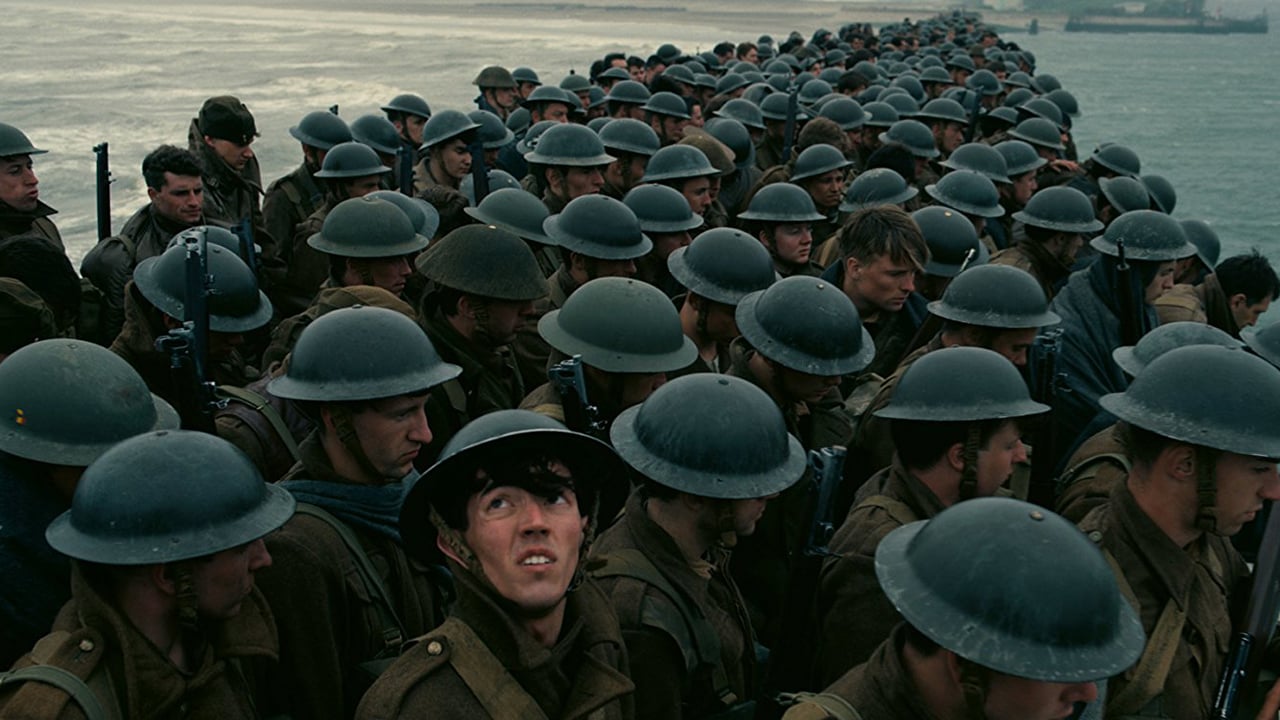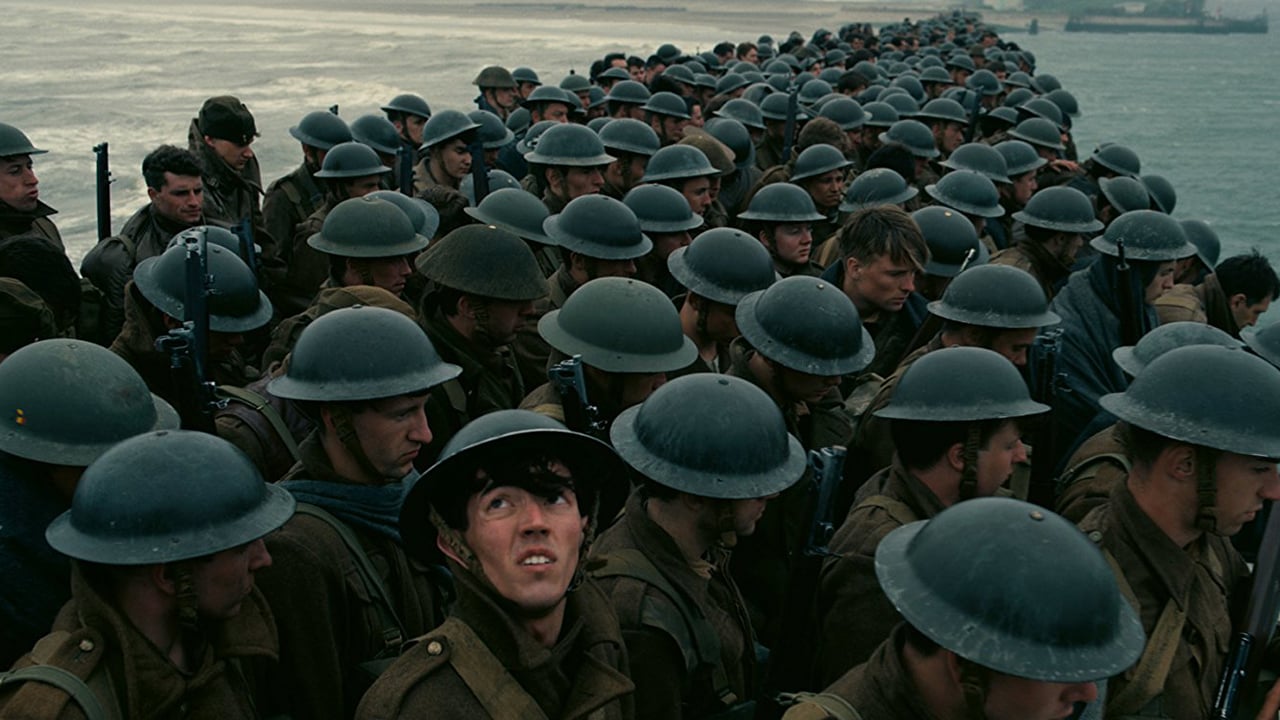

The film Dunkirk certainly got the production world talking. Now that the dust has settled Joe Foster gives us his review, and why this is such a notable film.
The first thing to say about Dunkirk is that it is very much an "event movie". The sort of film that you will read about in the press for its budget, its scale, the technology used, and/or any drama behind the scenes. The sort of spectacle that people will actively make trips to the cinema for rather than waiting for the home release. Titanic made the press for its budget and impressive ship sinking sequence, Avatar for its budget and the shoving of its 3D technology into our collective eyeballs. Gravity did so for its impressive sequences and scale — and actually making 3D worth your time for once (just that one time though). Even your parents and/or grandparents will likely make that rare trip to the cinema to see what all the fuss is about.
The fuss in question is the new movie directed by Christopher — “Where’s my bloody Oscar???” — Nolan, his first based on a real-life event. The film revolves around 400,000 British troops who were stranded in the French port town of Dunkirk during World War II. Sea is the only escape for them. However, German troops are closing in and they have air superiority. The story is told from three perspectives:
- Troops trapped at the docks (featuring Kenneth Branagh's worried-but-duty-bound Commander Bolton, and a variety of soldiers including One Direction's Harry Styles for some reason),
- British Spitfire pilots in the air (featuring Tom Hardy's plucky flying ace),
- British civilians who have taken it upon themselves to cross the channel and rescue the troops in their small boats (featuring Mark Rylance's brave fisherman and father).
The cast is large, with a mixture of fresh new faces and established stars. However, the good news is that star power is never the main focus — even Tom Hardy reprises his Bane routine of having his face obscured by a mask 95 percent of the time.
This is one of the reasons why Dunkirk is a blockbuster that impresses on so many levels. There are moments of sheer scale without feeling phoney or attention-seeking, interspersed with times of harrowing claustrophobia for good measure. Ever the champion of cinema as a visual and universal medium, Nolan and his team's use of cinematography, sound and music is nothing short of breathtaking. Director of Photography Hoyte Van Hoytema excels himself here — making handling the famously unwieldy IMAX film cameras look easy and fluid. Hans Zimmer's score is also worth mentioning, with an intense use of the Shepard Tone which really helps to boost the intensity of what we're seeing onscreen. For the uninitiated, the Shepard Tone is added to the main soundtrack and gives the illusion of an ever-rising note when it’s all mixed together. What this does is create suspense and intensify the visuals. Added to this is the excellent use of the scream that German fighters make when making their attacks — those who saw the first teaser trailer will know what I'm talking about.
Speaking of the fighters, as a side note for anyone who had WWII model planes as a child, this film reminds you of the awesomeness of the British Spitfire and the terror of the German Luftwaffe bombers and fighters. Fans of films such as 1969's Battle of Britain will feel instantly at home here. Speaking of comparisons to other movies, there will understandably be some direct correlation with other visually-impressive war films, such as Saving Private Ryan. Dunkirk should certainly be considered in the same ranks.
Although there are only scraps of dialogue and very little character development, Nolan's World War II epic has a boat-load of humanity. Some may find this as cold and unfeeling as Nolan's previous efforts (a similar criticism can be made of Stanley Kubrick's work), however, it actually strikes an excellent balance of realism and the human condition (plus a sprinkle of British patriotism to boot). Dunkirk intelligently drops us into the setting and story without battering the plot over our heads. Keep in mind that this is very much a Nolan blockbuster — that means that there is never a need to have characters endlessly explain the plot and what is happening. The visuals are disciplined enough to inform and amaze us without blasting our eyeballs (i.e. the Michael Bay's Transformers school of screen spectacle). Much like his previous work — e.g. Inception — Nolan treats his audience like the intelligent audience that they are and allows them to piece together everything that's presented for themselves. There is some experimentation with how the narrative is constructed, with time frames being out of order and/or overlapping. It sounds confusing and almost unnecessary on paper, but it really works.
Negative points are almost certainly nit-picky. The pace does drop around the end of the second act/start of the third and there is a noticeable format change for all of the Mark Rylance boat scenes. This means that you'll see black bars appear at the top and bottom of the screen when we switch to those moments — similar to when The Dark Knight changed from its limited number of IMAX-filmed scenes to regular 35mm. It’s not a deal breaker. It’s just a shame that these sections couldn't be presented with the same IMAX gorgeousness. Van Hoytema stated that roughly 70 percent of the movie was shot with Imax cameras in 15-perf 65mm and the rest with 5-perf 65mm using Panavision cameras. For now, then, this is as close as we'll get to a full IMAX blockbuster...
Something else to consider is that this film inevitably looks its very best on the biggest screens available. Much like Tarantino's Hateful Eight, some (but not all) of the visual glory will be lost upon its eventual home release. Unless, of course, you have a very large TV.
Dunkirk is powerful, visually arresting, and a truly unforgettable cinematic experience. Just be sure to see it on the biggest screen that you possibly can. Totally unmissable.
Tags: Studio & Broadcast


Comments